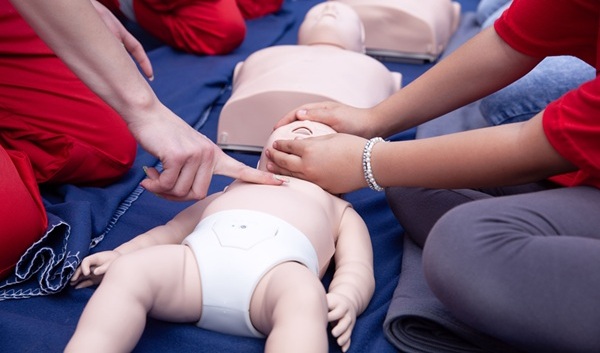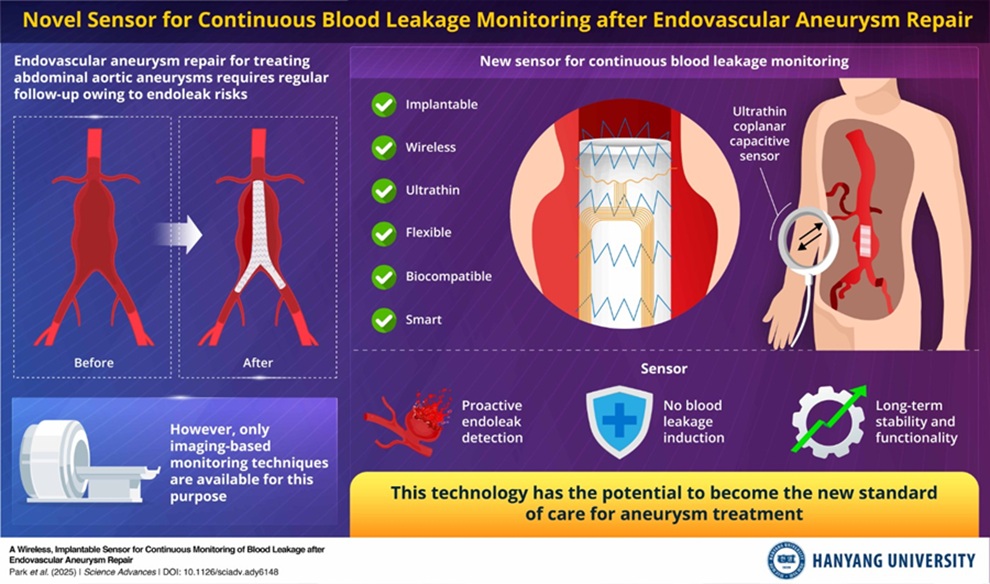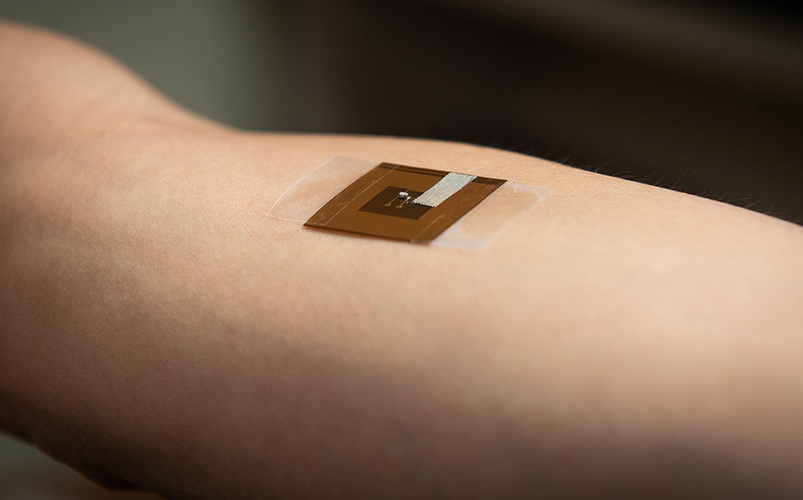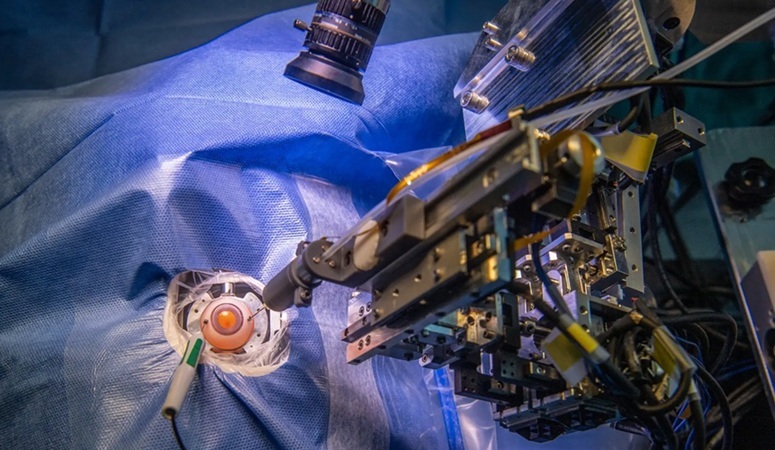ACR Releases Second Research Road Map on Medical Imaging AI
|
By HospiMedica International staff writers Posted on 24 Jun 2019 |

Image: New research outlines the challenges, opportunities and priorities for foundational research in AI for medical imaging (Photo courtesy of ABM).
The Journal of the American College of Radiology (JACR) has published a report detailing real-world artificial intelligence (AI) challenges and summarizing the priorities for translational research in AI for medical imaging to help accelerate the safe and effective use of AI in clinical practice. The report is the second part of a road map published in Radiology outlining the challenges, opportunities and priorities for foundational research in AI for medical imaging. The two reports are the outcome of an August 2018 workshop convened by the National Institute of Biomedical Imaging and Bioengineering {(NIBIB) Bethesda, MA, USA} to explore the future of AI in medical imaging.
The second report outlines four key priorities, namely creating structured AI use cases, defining and highlighting clinical challenges potentially solvable by AI; establishing methods to encourage data sharing for training and testing AI algorithms to promote generalizability to widespread clinical practice and mitigate unintended bias; establishing tools for validation and performance monitoring for AI algorithms to facilitate regulatory approval; and developing standards and common data elements for seamless integration of AI tools into existing clinical workflows.
“Radiology has transformed the practice of medicine in the past century, and AI has the potential to radically impact radiology in positive ways,” said Krishna Kandarpa, MD, PhD, co-author of the report and director of research sciences and strategic directions at NIBIB. “This roadmap is a timely survey and analysis by experts at federal agencies and among our industry and professional societies that will help us take the best advantage of AI technologies as they impact the medical imaging field.”
“Our companion paper gave a roadmap to advance foundational machine learning research. But for foundational research to benefit patients, novel algorithms must be evaluated and deployed in a safe and effective manner. This new roadmap paper gives guidance for the clinical translation of AI innovation,” said Curtis P. Langlotz, MD, PhD, report co-author and RSNA board liaison for information technology and annual meeting. “Together, these two connected roadmaps show us how AI not only will transform the work of radiologists and other medical imagers, but also will enhance the delivery of care throughout the clinical environment.”
Related Links:
National Institute of Biomedical Imaging and Bioengineering
The second report outlines four key priorities, namely creating structured AI use cases, defining and highlighting clinical challenges potentially solvable by AI; establishing methods to encourage data sharing for training and testing AI algorithms to promote generalizability to widespread clinical practice and mitigate unintended bias; establishing tools for validation and performance monitoring for AI algorithms to facilitate regulatory approval; and developing standards and common data elements for seamless integration of AI tools into existing clinical workflows.
“Radiology has transformed the practice of medicine in the past century, and AI has the potential to radically impact radiology in positive ways,” said Krishna Kandarpa, MD, PhD, co-author of the report and director of research sciences and strategic directions at NIBIB. “This roadmap is a timely survey and analysis by experts at federal agencies and among our industry and professional societies that will help us take the best advantage of AI technologies as they impact the medical imaging field.”
“Our companion paper gave a roadmap to advance foundational machine learning research. But for foundational research to benefit patients, novel algorithms must be evaluated and deployed in a safe and effective manner. This new roadmap paper gives guidance for the clinical translation of AI innovation,” said Curtis P. Langlotz, MD, PhD, report co-author and RSNA board liaison for information technology and annual meeting. “Together, these two connected roadmaps show us how AI not only will transform the work of radiologists and other medical imagers, but also will enhance the delivery of care throughout the clinical environment.”
Related Links:
National Institute of Biomedical Imaging and Bioengineering
Latest AI News
Channels
Critical Care
view channel
CPR Guidelines Updated for Pediatric and Neonatal Emergency Care and Resuscitation
Cardiac arrest in infants and children remains a leading cause of pediatric emergencies, with more than 7,000 out-of-hospital and 20,000 in-hospital cardiac arrests occurring annually in the United States.... Read more
Ingestible Capsule Monitors Intestinal Inflammation
Acute mesenteric ischemia—a life-threatening condition caused by blocked blood flow to the intestines—remains difficult to diagnose early because its symptoms often mimic common digestive problems.... Read more
Wireless Implantable Sensor Enables Continuous Endoleak Monitoring
Endovascular aneurysm repair (EVAR) is a life-saving, minimally invasive treatment for abdominal aortic aneurysms—balloon-like bulges in the aorta that can rupture with fatal consequences.... Read more
Wearable Patch for Early Skin Cancer Detection to Reduce Unnecessary Biopsies
Skin cancer remains one of the most dangerous and common cancers worldwide, with early detection crucial for improving survival rates. Traditional diagnostic methods—visual inspections, imaging, and biopsies—can... Read moreSurgical Techniques
view channel
Robotic Assistant Delivers Ultra-Precision Injections with Rapid Setup Times
Age-related macular degeneration (AMD) is a leading cause of blindness worldwide, affecting nearly 200 million people, a figure expected to rise to 280 million by 2040. Current treatment involves doctors... Read more
Minimally Invasive Endoscopic Surgery Improves Severe Stroke Outcomes
Intracerebral hemorrhage, a type of stroke caused by bleeding deep within the brain, remains one of the most challenging neurological emergencies to treat. Accounting for about 15% of all strokes, it carries... Read morePatient Care
view channel
Revolutionary Automatic IV-Line Flushing Device to Enhance Infusion Care
More than 80% of in-hospital patients receive intravenous (IV) therapy. Every dose of IV medicine delivered in a small volume (<250 mL) infusion bag should be followed by subsequent flushing to ensure... Read more
VR Training Tool Combats Contamination of Portable Medical Equipment
Healthcare-associated infections (HAIs) impact one in every 31 patients, cause nearly 100,000 deaths each year, and cost USD 28.4 billion in direct medical expenses. Notably, up to 75% of these infections... Read more
Portable Biosensor Platform to Reduce Hospital-Acquired Infections
Approximately 4 million patients in the European Union acquire healthcare-associated infections (HAIs) or nosocomial infections each year, with around 37,000 deaths directly resulting from these infections,... Read moreFirst-Of-Its-Kind Portable Germicidal Light Technology Disinfects High-Touch Clinical Surfaces in Seconds
Reducing healthcare-acquired infections (HAIs) remains a pressing issue within global healthcare systems. In the United States alone, 1.7 million patients contract HAIs annually, leading to approximately... Read moreHealth IT
view channel
Printable Molecule-Selective Nanoparticles Enable Mass Production of Wearable Biosensors
The future of medicine is likely to focus on the personalization of healthcare—understanding exactly what an individual requires and delivering the appropriate combination of nutrients, metabolites, and... Read moreBusiness
view channel
Philips and Masimo Partner to Advance Patient Monitoring Measurement Technologies
Royal Philips (Amsterdam, Netherlands) and Masimo (Irvine, California, USA) have renewed their multi-year strategic collaboration, combining Philips’ expertise in patient monitoring with Masimo’s noninvasive... Read more
B. Braun Acquires Digital Microsurgery Company True Digital Surgery
The high-end microsurgery market in neurosurgery, spine, and ENT is undergoing a significant transformation. Traditional analog microscopes are giving way to digital exoscopes, which provide improved visualization,... Read more
CMEF 2025 to Promote Holistic and High-Quality Development of Medical and Health Industry
The 92nd China International Medical Equipment Fair (CMEF 2025) Autumn Exhibition is scheduled to be held from September 26 to 29 at the China Import and Export Fair Complex (Canton Fair Complex) in Guangzhou.... Read more














